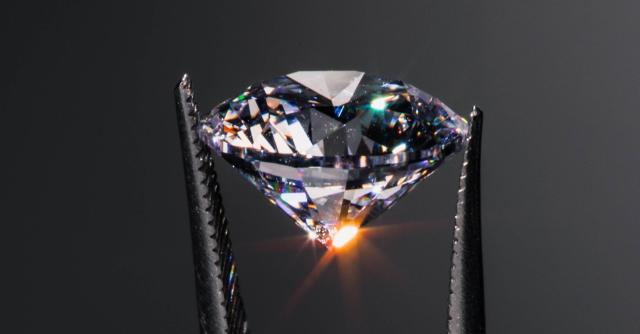Introduction: What are Mined Diamonds?
You’ve probably heard the saying, “diamonds are forever,” but have you ever thought about where these sparkling gems come from? Mined diamonds are natural diamonds formed deep within the Earth’s crust over millions of years. They’re created under intense heat and pressure, resulting in the lab grown diamonds stones we’ve come to cherish.
Understanding Karma
Before diving into the connection between mined diamonds and karma, let’s clarify what karma is. In simple terms, karma is the concept that our actions have consequences, whether positive or negative, that will eventually come back to us. It’s like a cosmic balance sheet, where good deeds accumulate positive karma and bad deeds bring negative karma.
How are Mined Diamonds Connected to Karma?
The link between might not be immediately obvious, but it’s worth exploring. When we purchase mined diamonds without considering their ethical and environmental impact, we might be contributing to negative karma. This is because the process of diamond mining often involves exploitation, environmental destruction, and human rights abuses.
The Dark Side of Diamond Mining
Diamond mining has a dark side that’s often hidden behind the glitz and glamour of the jewelry industry.
Environmental Impact of Diamond Mining
The environmental toll of diamond mining is significant. The excavation process can lead to deforestation, soil erosion, and the contamination of water sources with toxic chemicals. Wildlife habitats are destroyed, and ecosystems are disrupted, causing long-term damage to the environment.
Human Rights Concerns in Diamond Mining
Beyond the environmental consequences, diamond mining is rife with human rights abuses. Miners, often from marginalized communities, are subjected to hazardous working conditions, low wages, and exploitation by mining companies. Child labor is also a disturbing reality in some diamond-producing regions.
Exploitation and Conflict
In regions where diamonds are mined, such as parts of Africa, the trade has been linked to conflicts and civil unrest. Diamonds, sometimes referred to as “blood diamonds” or “conflict diamonds,” have funded wars and fueled violence, leaving a trail of devastation in their wake.
Alternatives to Mined Diamonds
Thankfully, there are alternatives to mined diamonds that offer a more ethical and sustainable choice.
Lab-Grown Diamonds
One promising alternative is lab-grown diamonds. These diamonds are created in laboratories using advanced technology that replicates the natural diamond-growing process. Lab-grown diamonds have the same chemical composition and physical properties as mined diamonds, but they’re produced in a controlled environment without the environmental and ethical concerns associated with mining.
Benefits of Lab-Grown Diamonds
Lab-grown diamonds offer several advantages over their mined counterparts. Firstly, they’re more environmentally friendly, as they require significantly less energy and water to produce. Additionally, lab-grown diamonds are free from the ethical issues surrounding traditional diamond mining, making them a guilt-free choice for conscientious consumers.
Ethical Considerations
Choosing lab-grown diamonds aligns with ethical principles of fairness, sustainability, and respect for human rights. By opting for lab-grown diamonds, consumers can feel good knowing that their purchase supports ethical practices and contributes to positive karma.
Impact on Karma
From a karmic perspective, selecting lab-grown diamonds over mined diamonds can be seen as a positive action. By making a conscious choice to avoid supporting industries that harm the environment and exploit workers, individuals can accumulate positive karma and contribute to a more just and sustainable world.
Making Informed Choices
Now that you understand the connection between diamonds and karma, how can you make informed choices when purchasing diamond jewelry?
How to Identify Ethical Diamonds
One way to ensure you’re buying ethical diamonds is to look for certifications from reputable organizations, such as the Responsible Jewellery Council (RJC) or the Kimberley Process Certification Scheme, which aims to prevent the trade of conflict diamonds.
Questions to Ask Before Purchasing
Before making a purchase, ask your jeweler questions about the diamond’s origin, ensuring it’s ethically sourced and produced. Inquire about the diamond’s certification, environmental impact, and any social responsibility initiatives undertaken by the company.
Supporting Ethical Practices
By supporting jewelers and brands that prioritize ethical practices and sustainability, you can help drive positive change in the industry. Look for companies that are transparent about their supply chain and actively work to improve social and environmental standards.
Conclusion
In conclusion, the connection between Mined Diamonds and bad karma karma goes beyond surface-level sparkle. By understanding the ethical and environmental implications of diamond mining and opting for alternatives like lab-grown diamonds, consumers can make choices that align with their values and contribute to positive karma.









